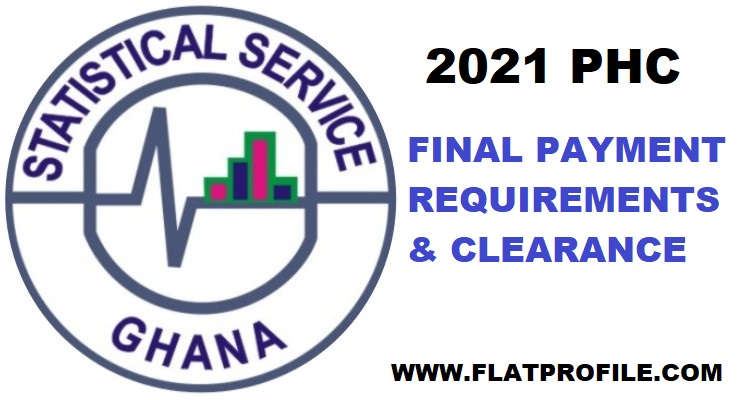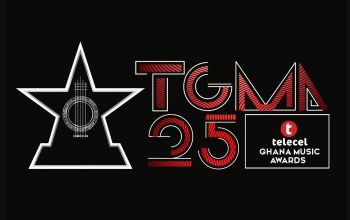Ghana Statistical Service – GSS payment clearance requirements. All field officers should note that clearance of both enumerators and supervisors shall be completed before final payment. This process will be carried out as follow:
- Enumeration Area/Supervisory Area
- DCO District Census Officer
- DDQMT District Data Quality Management Team
- Validation at HQ for final payment
Table of Contents
Enumeration Area/Supervisory Area Clearance by Supervisor
- Ensure all structures are listed
- Ensure all Households are enumerated.
- Check for Duplicate and Partial saves cases for corrections and completeness
- Sync Data with Enumerator
- Sync Data to HQ
- Receive updates from HQ
- Send updates from HQ to enumerators.
- Run reports on completed EAs for omission and correction.
- Check and help Enumerators working under you to solve whatever challenges they may encounter during enumeration, whether ICT-related or otherwise. Where the supervisor is unable to resolve ICT-related challenges, he/she should consult IT Officer for assistance.
- Report any problem encountered to the DFS
Handing over of documents to DFS/DCO
It may be necessary to book an appointment with your DFS/DCO before seeing him/her, as other Field Supervisors may also wish to see him/her at the same time. When you hand over the documents to the DFS/DCO, he/she will check them again with you, and you must make sure that you obtain his/her signature on your copy of the Field Supervisor’s Material Receipt
The success of the Census depends, to a large extent, on how well you perform your assignment. We know you will succeed. Be a good leader of your team and set as your goal the production of the best performance during the enumeration.
Collecting Census Documents and Materials from each Enumerator
Supervisors will collect all the materials that are returnable including the tablets and questionnaires (completed, spoiled, canceled, and unused), from the Enumerators and hand them over to your DDQMT. If there were interviews made with the paper questionnaire, remember to ensure that all the information elicited has been entered into the CAPI.
It is advisable to fix an appointment with each Enumerator so that you will have sufficient time to carry out the final review. In addition to the completed questionnaires, you should collect all the items that are returnable to the Census Coordinator. If you find that everything is correct, sign the Enumerator’s Material Record Form and hand it to the Enumerator.
Completing the Field Supervisor’s Materials Receipt Form
You must complete the appropriate part of the Field Supervisor’s Materials Receipt Form whenever you receive any materials from your DFS/DCO, who will, in turn, do the same whenever you hand over any materials to him/her. Remember that some of these materials would have to be returned after the census period. These include:
- Tablets and accessories
- Enumeration Area (EA) map
- Enumerator’s bag
- Identity Card
- Certificate of Enumeration (unused)
- Unused call-back cards
- Field officer’s manual
- Paper questionnaires (both used and unused)
- If any other items would need to be returned they will be communicated to you by your
- DFS/DCO.
Items not to be collected
- ISCO (Code list)
- ISIC (Code list)
- Rain Coat
- Wellington boot
- Census Jacket
- Census cap
You must return all the items from your enumerators at the end of fieldwork and submit them to your DFS/DCO for onward submission to the Census Coordinator. You must fill the appropriate form whenever you receive materials from your Enumerators and whenever you submit materials to your DFS/DCO for proper records keeping. Note that you will be surcharged for failure to submit all returnable items.
Validation at the HQ
The HQ must:
- Ensure that EAs and SAs are on the GIS list of EAs have been fully covered during the listing
- Validate all recommendations from DDQMTs and RCO
- Check that the list of SAs has successfully passed the criteria and forward it to the finance team for Ghana Statistical Service final payment.
Ghana.GOV Website is an Online Portal for all Government Agencies





